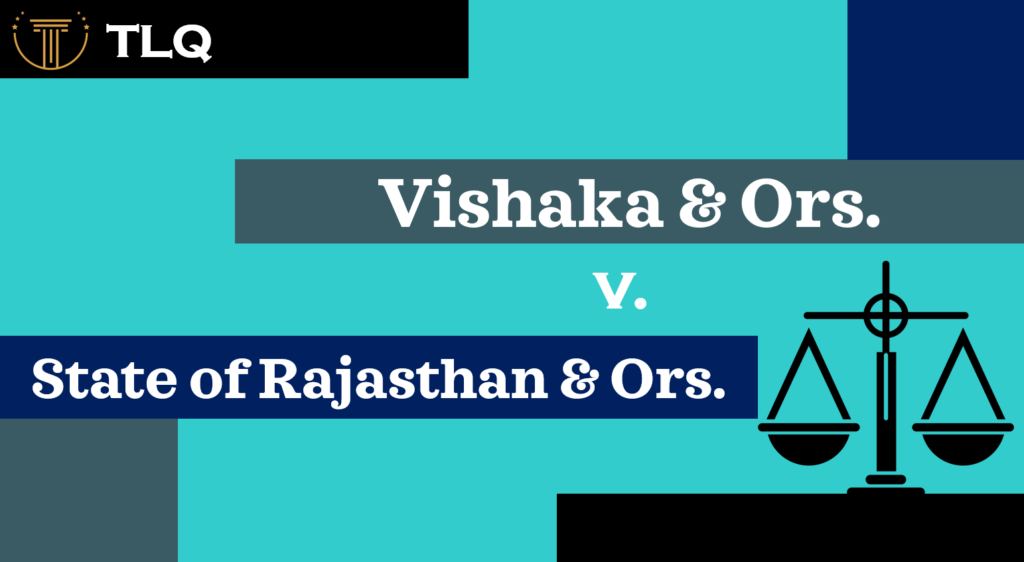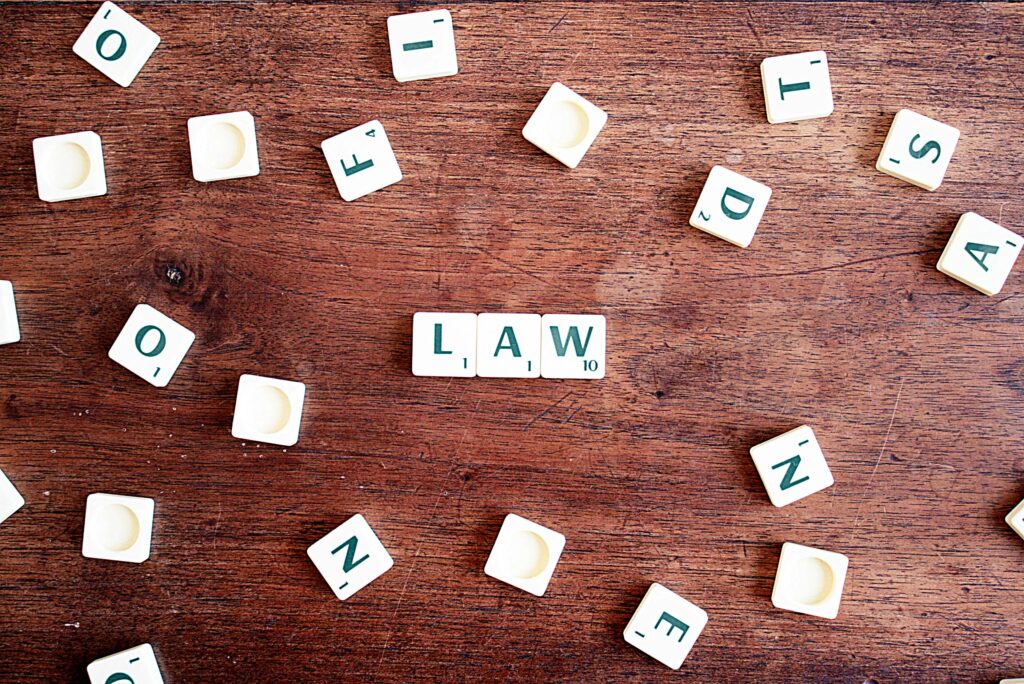Published on 1st July 2025
Authored By: V Radha Priyanka
Amity University Rajasthan
Petitioner: Arvind Kejriwal
Respondent: Directorate of Enforcement
Judgment Date: 09.04.2024
Court: In the High Court of Delhi at New Delhi
Judge: Hon’ble Ms. Justice Swarna Kanta Sharma
Introduction
The case of Arvind Kejriwal v. Directorate of Enforcement in 2024 marks a significant chapter in Indian legal and political history. This case centered on the detention of Delhi Chief Minister Arvind Kejriwal by the Directorate of Enforcement (ED) under the Prevention of Money Laundering Act (PMLA) related to the purported Delhi Excise Policy scam. The issue escalated to the Supreme Court, which had to navigate critical constitutional principles—such as the right to freedom, the fairness of the judicial process, and the autonomy of investigative agencies—while considering allegations of political revenge and the integrity of the electoral process.
Background of the Case
The Delhi Excise Policy 2021–22
The Delhi Excise Policy for the 2021-22 period was implemented to boost revenue and combat the liquor mafia in the city. It brought about major changes in the granting and management of alcohol licenses. However, by the middle of 2022, accusations emerged that the policy had been exploited to favor certain liquor distributors and private entities in return for bribes. In August 2022, the Central Bureau of Investigation (CBI) filed a First Information Report (FIR) following a complaint made by Delhi’s Lieutenant Governor. The Enforcement Directorate (ED) then initiated a money laundering investigation based on the initial offence reported by the CBI.
Key Allegations
- The policy reportedly benefitted specific liquor license holders and facilitated cartel-like behavior.
- It was alleged that bribes were given to political figures and officials in return for advantageous policy conditions
- The Enforcement Directorate asserted that the Aam Aadmi Party (AAP) utilized the proceeds of crime during the 2022 Goa Assembly elections.
Multiple people, such as former Delhi Deputy Chief Minister Manish Sisodia, have already been taken into custody concerning the case. Arvind Kejriwal had been summoned by the ED nine times prior to his arrest in March 2024.
Arrest of Arvind Kejriwal
On March 21, 2024, Arvind Kejriwal was arrested by the Enforcement Directorate (ED), marking a historic event as the first sitting Chief Minister of India to be taken into custody. The ED justified the arrest by claiming that Kejriwal played a significant role in the excise policy scam and had not complied with the investigation. The arrest sparked immediate upheaval in both political and legal arenas. Detractors asserted that the timing—just weeks ahead of the 2024 General Elections—was driven by political motives. Supporters of Kejriwal, along with various leaders from the opposition, accused the ruling Bharatiya Janata Party (BJP) of weaponizing investigative agencies to undermine their political adversaries.
Legal Proceedings
A. Petition in Delhi High Court
Kejriwal’s legal representatives submitted a writ petition to the Delhi High Court, invoking Article 226 of the Constitution and Section 482 of the Code of Criminal Procedure, to contest the validity of his arrest. They argued that:
- The arrest infringed upon Articles 14, 19, 21, and 22[1] of the Indian Constitution
- The Enforcement Directorate failed to adhere to the proper procedures mandated by Section 19 of the PMLA[2].
- The summonses issued were unclear and politically motivated.
Nevertheless, the Delhi High Court rejected the petition on April 9, 2024, asserting that the ED had adequate grounds for the arrest and that the procedures followed did not contravene any legal provisions.
B. Appeal to the Supreme Court
Kejriwal subsequently went to the Supreme Court, claiming that his arrest violated constitutional rights and that his ongoing detention hindered his capacity to govern the state and engage in democratic activities. The Supreme Court consented to review the case and adopted a careful stance.
Supreme Court Proceedings
Interim Bail for Campaigning
On May 10, 2024, the Supreme Court granted temporary bail to Kejriwal, permitting him to engage in campaigning for the current Lok Sabha elections until June 1, 2024. The Court highlighted:
- The essential right to freedom enshrined in Article 21[3].
- The importance of allowing a prominent political figure to take part in elections for the health of democracy.
- That granting bail during election periods is neither unusual nor extraordinary.
Nonetheless, the Court clarified that this decision should not be construed as a judgment on the validity of the charges. The bail was strictly provisional and for a defined objective.
Kejriwal was obligated to surrender following June 1.
CBI Arrest and Bail
While still in judicial custody for the ED case, Kejriwal was apprehended by the CBI on June 26, 2024, in a related corruption matter under the Indian Penal Code and the Prevention of Corruption Act. This arrest drew additional attention as it occurred immediately after the interim bail had expired. On July 12, 2024, the Supreme Court approved his bail in the CBI case, pointing out that: He had already spent several months in custody. The investigation had resulted in several supplementary charge sheets. A trial in this intricate case was unlikely to reach a conclusion anytime soon. Justice Khanna, part of the two-judge panel, determined that denying bail under these circumstances would breach the principle of proportionality and infringe upon the right to personal liberty.
Key Legal Issues
1. Procedural Safeguards under PMLA
The Prevention of Money Laundering Act allows the ED to arrest individuals based on “reasons to believe” that an offence under the Act has been committed. Kejriwal’s legal team argued that the ED failed to satisfy this threshold.
The Court had to consider whether:
- The ED had documented and disclosed valid reasons for the arrest.
- The arrest complied with Sections 19 and 50 of the PMLA[4], which require procedural safeguards.
- The rights of the accused were respected in terms of furnishing grounds of arrest promptly and in writing.
2. Fundamental Rights under the Constitution
Kejriwal’s legal reasoning focused on breaches of Articles 14 (equality before the law), 19 (freedom of expression and association), 21 (right to life and liberty), and 22 (protection against wrongful arrest)[5]. The Supreme Court emphasized that while the PMLA grants substantial authority to the ED, it does not function in a constitutional void. All statutory powers must be executed in a manner that is just, reasonable, and non-arbitrary..
3. Doctrine of Proportionality
The Court applied the doctrine of proportionality, which has been used in Indian jurisprudence to balance individual rights with public interest. The Court examined:
- Whether arresting a sitting Chief Minister weeks before an election was a proportionate action.
- Whether continued incarceration was necessary for the investigation.
- Whether bail would impede the investigation or risk tampering of evidence.
The Court noted that long-term pre-trial incarceration cannot be justified when a trial is not imminent.
Impact on Democratic Process
The intersection of law and politics emerged as perhaps the most critical concern. Kejriwal’s legal representatives contended that his arrest transcended a personal matter and posed significant implications for democracy and the principles of free and fair elections. The Supreme Court, while careful not to disrupt the independence of investigative agencies, acknowledged the wider democratic ramifications. It stressed that in a healthy democracy, due process must be meticulously upheld, particularly when political figures are implicated.
Political and Social Reactions
National Reactions
- The Aam Aadmi Party and several opposition parties condemned the arrest, calling it “a war against democracy.”
- The BJP defended the ED and claimed that Kejriwal was not above the law.
- Several rallies, protests, and legal campaigns were launched across the country.
Media Coverage
Media houses, think tanks, and legal analysts were sharply divided:
- Some hailed the judiciary for maintaining equilibrium between law and liberty.
- Others criticized the increasing politicization of investigative agencies and the shrinking space for dissent.
International Reactions
- Amnesty International and Human Rights Watch expressed concern about the use of anti-corruption laws to target political opponents.
- Several foreign media outlets noted the shrinking democratic space in India and questioned the neutrality of key institutions.
Constitutional Implications
This case is likely to be studied for years for its impact on:
- Federalism: The arrest of a Chief Minister by a central agency raised questions about state autonomy.
- Separation of Powers: It tested the judiciary’s willingness to act as a check on executive overreach.
- Individual Liberty: It reiterated the centrality of Article 21 even in high-profile cases[6].
- Electoral Integrity: It opened new discussions on how legal proceedings can influence electoral outcomes.
Conclusion
The case of Arvind Kejriwal v. Directorate of Enforcement (2024) highlights the Supreme Court’s delicate balance between legality and liberty, as well as between enforcement and fairness. Although the Court upheld the legality of the arrest, its rulings on bail and due process stressed that constitutional values must take precedence, regardless of the seriousness of the accusations. In a time when political discussions frequently become divisive, this case reminds us of the judiciary’s duty to uphold constitutional integrity. It also emphasizes the importance of transparency, accountability, and limitations on state authority, particularly in politically sensitive issues.
References
[1] Constitution of India,1950, Article 14,19,21,22
[2] The Prevention of Money Laundering Act,2002, Section 19
[3] Constitution of India, 1950, Article 21
[4] Prevention of Money Laundering Act,2002, Section 19 & Section 50
[5] The Constitution of India,1950,Article 14,Article 19,Article 21, Article 22
[6] The Constitution of India, 1950, Article 21




